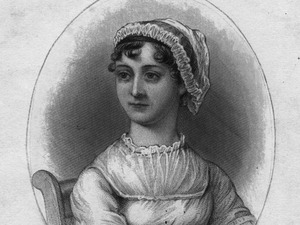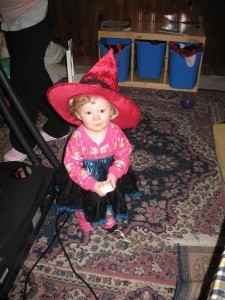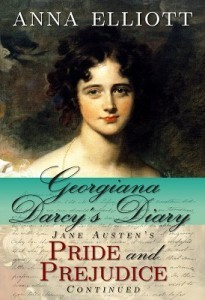Anna Elliott's Blog, page 3
June 7, 2011
Following the Drum: Women in Wellington's Army
One of my favorite aspects of writing historical fiction is the research. Learning the details of daily life in bygone eras, how men and women dressed, what they ate, how they traveled and what books they might have read. Most of all, though, I love reading through the primary sources–diaries, letters, cookbooks, contemporary accounts–and actually hearing the voices of the women and men who lived in the time periods I write about.
Edward, one of the main characters in Georgiana Darcy's Diary, is a Colonel in the army, which sent me on a mission to discover as much as I could about the British army during the Regency era. Though Jane Austen scarcely mentions it in her novels, England was at war with France through almost the whole of her life, often under serious threat of invasion by Napoleon's forces. I read through general histories of the Napoleonic wars, of course. But for me the most fascinating and vivid accounts are those written by the soldiers themselves.
One of these accounts is titled, The Recollections of Rifleman Harris. Benjamin Harris was a young shepherd from Dorset who joined the army in 1802 and later joined the 95th Rifles Batallion. His Batallion was ordered to Portugal, where he fought against Napoleon's armies and suffered almost unimaginable hardships. He speaks of starvation, of men falling dead of sheer exhaustion during the long forced marches of retreat from the enemy, of the terrible noise and fierce joy of battle. He recounts at last returning to England with his fellow surviving soldiers, saying, "Our beards were long and ragged; almost all were without shoes and stockings; many had their clothes and accoutrements in fragments, with their heads swathed in old rags, and our weapons were covered with rust; whilst not a few had now, from toil and fatigue, become quite blind."
It's an extraordinary picture of what it must have been like to be a soldier in the Napoleonic wars. But for me the most poignant accounts in Harris' Recollections are those that detail the experiences of the women who traveled with the British army. On any campaign, a certain number of the men were permitted to bring their wives and children along, those who were to receive this privilege being chosen by lottery. (And it was a privilege, since those wives unable to accompany their men were given a small sum, but would have to house, feed, and support themselves and their children entirely on their own while their men were gone. They faced the very real possibility of starvation, the workhouse, or being forced into prostitution). On the campaign Harris writes of, though, the suffering of the women and children who 'followed the drum' as the contemporary expression goes, is absolutely heartbreaking. The whole of the army was starving and exhausted almost to the point of death; there could be no help for anyone who couldn't keep up.
During one disastrous retreat across snow-covered mountains, Harris recalls, "I remember passing a man and woman lying clasped in each other's arms, and dying in the snow. I knew them both; but it was impossible to help them. They belonged to the Rifles, and were man and wife. The man's name was Joseph Sitdown. During this retreat, as he had not been in good health previously, himself and his wife had been allowed to get on in the best way they could in the front. They had, however, now given in, and the last we ever saw of poor Sitdown and his wife was on that night lying perishing in each other's arms in the snow."
Harris also writes: "About this period I remember another sight, which I shall not to my dying day forget; and it causes me a sore heart, even now, as I remember it. Soon after our halt beside the turnip field the screams of a child near me caught my ear, and drew my attention to one of our women, who was endeavouring to drag along a little boy of about seven or eight years of age. The poor child was apparently completely exhausted, and his legs failing under him. The mother had occasionally, up to this time, been assisted by some of the men, taking it in turn to help the little fellow on; but now all further appeal was in vain. No man had more strength than was necessary for the support of his own carcass, and the mother could no longer raise the child in her arms, as her reeling pace too plainly showed. Still, however, she continued to drag the child along with her. It was a pitiable sight, and wonderful to behold the efforts the poor woman made to keep the boy amongst us. At last the little fellow had not even strength to cry, but, with mouth wide open, stumbled onwards, until both sank down to rise no more."
Other stories, though, are an incredibly testament to the human power of endurance. During this same retreat, Harris recounts: "One of the men's wives (who was struggling forward in the ranks with us, presenting a ghastly picture of illness, misery, and fatigue), being very large in the family-way, towards evening stepped from amongst the crowd, and lay herself down amidst the snow, a little out of the main road. Her husband remained with her; and I heard one or two hasty observations amongst our men that they had taken possession of their last resting-place. The enemy were, indeed, not far behind at this time, the night was coming down, and their chance seemed in truth but a bad one. To remain behind the column of march in such weather was to perish, and we accordingly soon forgot all about them. To my surprise, however, I, some little time afterwards (being myself then in the rear of our party), again saw the woman. She was hurrying, with her husband, after us, and in her arms she carried the babe she had just given birth to. Her hausband and herself, between them, managed to carry that infant to the end of the retreat, where we embarked. God tempers the wind, it is said, to the shorn lamb; and many years afterwards I saw that boy, a strong and healthy lad. The woman's name was M'Gwuire, a sturdy and hardy Irishwoman; and lucky was it for herself and babe that she was so, as that night of cold and sleet was in itself sufficient to try the constitution of most females. I lost sight of her, I recollect, on the night, when the darkness came upon us; but with the dawn, to my surprise, she was still amongst us."
Incredible enough to be part of a novel . . . but Harris' stories are entirely true, authentic voices from the past.
May 29, 2011
Mary Stewart
Last October, Sophie Masson, a fellow contributor of mine over at Writer Unboxed, wrote a blog post in praise of Mary Stewart, who wrote romantic suspense–some of the finest and most beautifully written romantic suspense of all time, I would say–during the 1960's and 70's. Her books include: This Rough Magic; The Ivy Tree; My Brother Michael; The Moon-spinners; Nine Coaches Waiting; Wildfire at Midnight; Thunder on the Right; The Gabriel Hounds; Touch Not the Cat; Airs Above the Ground. And if you've not read them yet, you must MUST pick them up. Since Sophie put it so well, and since I couldn't agree more with everything she said, I'll quote from her post:
I was struck by the clarity, beauty and intelligence of her style, and the way it manages to wear its learning so lightly. For there are many, many literary and historical allusions in Mary Stewart's books; her love of Shakespeare and of Greek and Roman classics and Celtic myth, especially, shines through, enriching the books whilst never being overbearing. Her evocation of place, of landscape and architecture and atmosphere, is superb. She effortlessly bridges the so-called gap between 'literary' and 'genre' fiction, proving you don't have to use tortured 'literary' constructions to write well, and neither do you need to write 'down' in order to tell a rattling good story.
And the books haven't dated at all, despite or perhaps partly because of, their lack of graphic sexual and violent content. And that's borne out by teenage girls to whom I've introduced the novels; they are immediately captivated by their glamour and excitement and do not care at all that the books are set in the 50?s and 60?s. It's always fun when you can pass on something you've loved to the next generation, but passing on the Mary Stewart bug is sheer delight.
I happen to have been an absolutely devoted Mary Stewart fan since I was 13 or 14. I've read all her books more times than I can even begin to count, and have been swept away with them all. So I left a comment on Sophie's post agreeing one hundred percent. Probably one of the luckiest comments I've ever made, too, because a few months ago I received a letter from a publicist at Hodder & Stoughton publishing saying that they were re-issuing Mary Stewarts books, and would I be interested in getting review copies of the new editions to help spread the word? My fingers FLEW over the keyboard to reply something along the lines of, Yes! yes! yes!
You can join me over on Goodreads if you'd like to read my reviews of Mary Stewart's books. And you can find out more about the re-issues here. Aren't the vintage-style covers gorgeous? Mostly, though, whether you buy the books new or simply check them out of your local library, please, please give Mary Stewart's books a try. I can't think of any author who deserves to have her books endure through generation after generation more.
I'll close with a passage from The Gabriel Hounds, which I'm choosing almost at random because flip open ANY of Mary Stewart's books and you will find this kind of lyrical, limpid-clear prose.
The night was warm and scented, the sky black, with that clear blackness that one imagines in outer space. Hanging in it, the clustered stars seemed as large as dog-daisies, and there was a crescent moon. Here and there its light struck a gleam from the surface of the lake. A couple of nightingales sang one against the other in a sort of wild angelic counterpoint.
Don't you love her? Don't you? Add wonderful, intelligent, courageous heroines, dreamy, dashing heroes, and romance so timeless and sweet it's like the fragrance of an old-world rose, and you have to find yourself one of Mary Stewart's books. You just have to.
May 16, 2011
The Trouble With Language Acquisition
So despite having a fair number of 'bad words' in my books (98% of my male characters are warriors, and I just couldn't make myself realistically imagine their speech patters as squeaky-clean) I don't use swear words myself. Really not ever. Not that I mean this as a holier-than-thou kind of statement, because it's not that I'm especially offended if other people swear. I mean, there are obviously MANY worse things people can do than use curse words, right? It's just . . . not me. My four year old will drop something and yell "Oh BOTHER!" because that's about the worst word she's ever heard me use. I mention this only because it makes Vivi's (age 20 mos.) recent language development all the more ironic.
One of Vivi's favorite words to say is "sit". She can now climb up and "sit" on the couch all by herself and is VERY proud of herself, and she wants you to come and read to her or play with her, she'll pat the ground or couch next to herself and say, "Sit! Sit!" Which is great. Except that she has a slight lisp, whereby an 's' sound becomes 'sh'. Which means that the word 'sit' when she says it sounds like, um, another word entirely. Our conversations tend to go something like this:
Vivi, patting the couch cushion next to her: "Mama sh**!"
Me: "Mama sit. Say 'sit', sweetie."
Vivi: "SH**! SH**! SH**!"
Me: "How about we just go with, Mama read?"
As if this isn't enough, one of Vivi's other favorite words is 'frog'. She has this little frog toy, you've probably seen the kind, with the suction cup in the base, so you push it down and then the frog 'hops' when the suction cup releases? She LOVES it. Also great. Except that in Vivi-speak the word 'frog' sounds like another word that also starts with 'f' but rhymes with 'truck'. I kid you not. The other night I was talking to Nathan and she was BELLOWING it, trying to get my attention so that I would come and play with the frog with her. Nathan, who had never heard this particular word of hers before did kind of a double take then gave me raised eyebrows, mouth twitching as he struggled not to burst out laughing, "What is she saying now?"
Ahhhh, what can I do? Just remember, if you happen to see my child in public and hear her version of 'sit' or 'frog', she's not saying what it sounds like. I swear. Um, I mean, I promise.
May 14, 2011
Free at Last
Chances are if you're looking at my blog, you've already realized that you can download Dawn of Avalon, my short-story prequel to the Twilight of Avalon trilogy, right here on my website for free. But just in case anyone would like it delivered for free right to their Kindle/iPhone/iPad/whatever, Amazon has just made it free on their website, too. I'm so pleased! 6 months ago when I first posted the story on Amazon I wanted to make it free, but Amazon policy dictated that I charge at least 99 cents. I'm not sure what caused the change, but I'm not complaining!
Also, the absolutely lovely Gemini Sasson invited me over to her blog this week to talk a little bit about Georgiana Darcy's Diary. Gemini is the author of Isabeau, A Novel of Queen Isabella and Sir Roger Mortimer, as well as The Bruce trilogy. You can check out her Amazon page and find her books here. She's amazing!
May 8, 2011
Happy Mother’s Day!
Happy Mother’s Day to all my fellow mamas out there! And to my own Mama, of course!
I dedicated my first book to my dad, because I always knew that if I were ever published, my first book would read ‘to my dad’ on the dedication page. My second book, Dark Moon of Avalon, is dedicated to my husband, because it’s the most romantic book of the trilogy. (This may or may not have something to do with the fact that as I recall, the poor guy was studying for his PhD comprehensive exams when I wrote it, which meant that channeling my distant memories of romance into the book were about as close to the real thing as I was going to get. 
My third book, Sunrise of Avalon, is really all about motherhood and mothering, which meant that from the very start I planned to dedicate it to my mom. And since it’s mother’s day today, I’ll share the poem I quoted in the dedication here.
You may have tangible wealth untold
Caskets of jewels and coffers of gold
Richer than I you can never be,
I had a mother who read to me.
That is for sure true for me, I can’t even begin to count the number of books my mom and I read together while I was growing up, some of my earliest memories are of the two of us curled up on the couch and reading The Bobsey Twins mysteries. That’s certainly why I read so much to my girls–and someday I hope they’ll read that poem and think, Yes, that’s me, too.
Happy Mother's Day!
Happy Mother's Day to all my fellow mamas out there! And to my own Mama, of course!
I dedicated my first book to my dad, because I always knew that if I were ever published, my first book would read 'to my dad' on the dedication page. My second book, Dark Moon of Avalon, is dedicated to my husband, because it's the most romantic book of the trilogy. (This may or may not have something to do with the fact that as I recall, the poor guy was studying for his PhD comprehensive exams when I wrote it, which meant that channeling my distant memories of romance into the book were about as close to the real thing as I was going to get. 
My third book, Sunrise of Avalon, is really all about motherhood and mothering, which meant that from the very start I planned to dedicate it to my mom. And since it's mother's day today, I'll share the poem I quoted in the dedication here.
You may have tangible wealth untold
Caskets of jewels and coffers of gold
Richer than I you can never be,
I had a mother who read to me.
That is for sure true for me, I can't even begin to count the number of books my mom and I read together while I was growing up, some of my earliest memories are of the two of us curled up on the couch and reading The Bobsey Twins mysteries. That's certainly why I read so much to my girls–and someday I hope they'll read that poem and think, Yes, that's me, too.
May 5, 2011
Jane Austen and Punctuation

In writing Georgiana Darcy's Diary, I included a play on the quotation from Pride and Prejudice: "It is a truth universally acknowledged, that a single man in possession of a good fortune, must be in want of a wife." Because, really, when writing a Pride and Prejudice sequel, how can you not include at least a nod to that most famous line?
I wanted to make sure, though, that I got the punctuation right–that my comma placement was the same as Jane Austen's. But in doing a little digging, I discovered something interesting: even Austen scholars aren't necessarily sure that the punctuation in Jane Austen's novels was hers.
Professor Kathryn Sutherland of the English language and literature faculty at Oxford University studied several of Jane Austen's unpublished manuscripts and determined that "Her style is much more intimate and relaxed, more conversational. Her punctuation is much more sloppy, more like the kind of thing our students do and we tell them not to. She uses capital letters and underlining to emphasise the words she thinks important, in a manner that takes us closer to the speaking voice than the printed page.
Sutherland's observations caused quite a controversy among other scholars and fans of Jane Austens work, who pointed out that we don't have so much as a page of the manuscripts of the novels that she submitted to her publishers. All that Sutherland or anybody else has to go on is the manuscripts for some teenage juvenilia and the rough drafts of some unfinished or discarded works.
It's a fascinating question, though, isn't it? As an author who views the 'delete' and 'cut and paste' functions of my word processing program absolutely essential to my writing process, I've often wondered how Jane Austen managed to construct and polish such works of utter genius with nothing more than pen and paper. I'd love to know just what a finished draft of one of her books looked like, how Pride and Prejudice read in the version she sent off to her publishers and so on into immortality.
May 3, 2011
Linky Love
I forgot to mention that over the weekend, the lovely Yamina from YaminaToday invited me over to her blog to talk a bit about the release of Georgiana Darcy's Diary. You can read my post here. Thanks for having me, Yamina!
May 1, 2011
Author Moments, part 2
As I've mentioned before, one of my absolute favorite moments as an author is when someone reads my books and is inspired to create their own art or writing because of it. I love that! This amazing poem was just sent to me by Julie, who used the place names on my map of Dark Age Britain to tell her own Arthurian-inspired story:
A woman at the Round Table
I am Julia, Princess of Gwynedd
Where it is said
That High Queen Guinever came
And soon I hope to do the same
And that is to carry on
Women who can be strong
For I have in my sight
To one day be a Round Table Knight
For I cannot be under my father's hand
Being that I am heiress to his land
My mother comes from a line of warrior Queens though
Their call grows strong in me so
I've been taught the skills of bow, sword and lance
Now all I need is the chance
To prove to them what I can do
And be the warrior that I am true
And one day it happened so
I asked to Camelot may I go
For an invitation from the High King Arthur was sent
Camelot's annual tournament where my three brothers before me have went
All became Knights but all in battle died
It was my chance, my turn to carry my families name with pride
To my amazement both father and mother did relent
So off to Camelot with my squire I went
Now in Camelot invintation and royal papers in hand
I signed in and was shown my stand
The first woman to enter the tournament I was told
That statement was bold
I made it all the way to the jousting games
Here is where you get yourself a name
First I fought from Camelerd Sir Cadell
It took three hits before he fell
Next I fought Sir Caerwyn from Cornwall
Another three hits and he too did fall
Next I fought from Dinas Emrys Sir Emlyn known as the Knight in Blue
Another three hits and I knocked him down too
Next I fought from Dumnonia Sir Dilwyn known as the Knight in Grey
Another three hits and he too on the ground lay
Next I fought Sir Dylan of Dyfed
With another three hits he too on the ground I led
Next I fought Sir Gruffudd of Gwent
With another three rounds he too to the ground I sent
Next I fought from London Sir Llewelyn one of the best
It took four rounds before I laid him to rest
Next I fought from Powys Sir Pryce known as the Black Hound
It took another four hits before I laid him to the ground
Next I fought from Rhegged Sir Roderick
It took five hits before I sent him to the ground to lick
Now I had to fight the current champion
From Tintagel Sir Talfryn
He was known as the Silver Knight
He sure did put up a good fight
But in the seventh rounds end
Him to the ground I did send
For a moment he stood disbelieved
But with a sigh the tournament title to me he did relieve
In awe the crowd did stand
As Sir Talfryn shook my hand
Before the High King and Queen I stood
I asked for knighthood
I told them like my brothers before me I wanted to be
And Arthur gave it to me freely
I was dubbed on the spot
Julia Round Table Knight of Camelot
You might think this is a fable
But it is not for I, Princess Julia of Gwynedd, became the first woman of the Round Table
April 26, 2011
New Release! Georgiana Darcy's Diary
I haven't blogged in SO long. I've been busy with these little girls of mine (warning! I am of course completely without bias when I say that you may die of the cuteness!)


And I'm also SO excited to announce that I've also been busy writing this book, which is released today!

I've over at Sarah Woodbury's blog today, talking a little bit about how I came to write Georgiana's Diary–stop by! And here's a run-down on the book itself:
Mr. Darcy's younger sister searches for her own happily-ever-after…
The year is 1814, and it's springtime at Pemberley. Elizabeth and Mr. Darcy have married. But now a new romance is in the air, along with high fashion, elegant manners, scandal, deception, and the wonderful hope of a true and lasting love.
Shy Georgiana Darcy has been content to remain unmarried, living with her brother and his new bride. But Elizabeth and Darcy's fairy-tale love reminds Georgiana daily that she has found no true love of her own. And perhaps never will, for she is convinced the one man she secretly cares for will never love her in return. Georgiana's domineering aunt, Lady Catherine de Bourgh, has determined that Georgiana shall marry, and has a list of eligible bachelors in mind. But which of the suitors are sincere, and which are merely interested in Georgiana's fortune? Georgiana must learn to trust her heart—and rely on her courage, for she also faces the return of the man who could ruin her reputation and spoil a happy ending, just when it finally lies within her grasp.
You can buy Georgiana Darcy's Diary here and here, or to read an excerpt from the book, click here.



